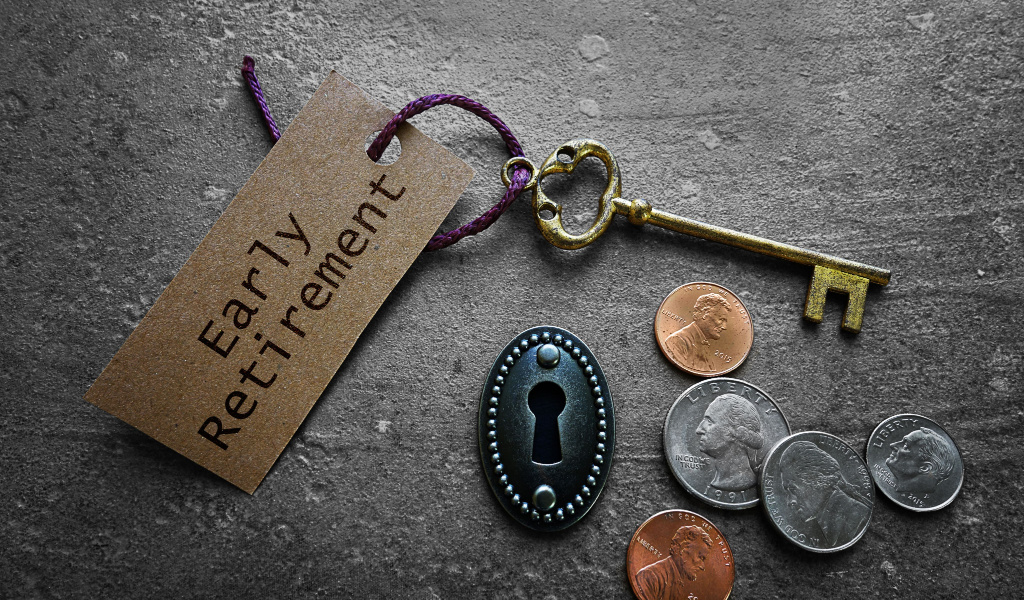For the majority of people, early retirement may not be a good idea.
Early retirement is often described as ceasing employment before the age of 55, although the majority of people tend to work well beyond that. You’ll likely need to work until you are at least 67 years old to save up enough money for a comfortable retirement unless you are fortunate enough to get a full pension and benefits that start at a young age – such as full military retirement or if you were employed as a police officer or firefighter.

Certainly, in order to save more for your needs, retain the activeness of your mind and body, and possibly extend your life, you may desire to work even longer. This article depicts some reasons why retiring early may not be a good idea.
Want to retire early? Think twice before making that pivotal decision. Here are 8 reasons why early retirement may not be the best idea.
You May Have Insufficient Savings
If you are a baby boomer who decided to have children a bit later than usual, your children may still be in college or in the early stages of their careers as you inch closer to retirement age. It’s also possible that you have older parents who require assistance with costly medical expenses or nursing facility fees.
Consider your expenses and compare them carefully to what you’ve got saved up before determining whether to retire early – especially if you intend to stay in your house and maintain your current standard of life.
You May Live Than Expected
If you log onto the Social Security website and input your gender and date of birth, it will give you an approximation of how long you will live. However, your individual life expectancy could vary for a number of causes. If you take good care of yourself by having a healthy diet, exercising frequently, and taking your medications as advised, you may well live to a 100! In such a case, you’ll need to consider whether you have enough to money to last that long.
One-third of today’s 65-year-olds will survive after age 90, and one-seventh will survive after age 95, according to the Social Security Administration. In 2020, retirees received an average monthly benefit of $1,503 or an annual payout of $18,036. Retirees find it difficult to cover their fundamental living expenses solely on Social Security income without savings and pension. Therefore, to fetch your highest Social Security benefit, it is wise to hold off retirement until the age of 70.
You May Die Quicker
That sounds quite morbid, but if you want it put in a nicer way – here goes. In 2017, a paper published in the Journal of Public Economics revealed that there may be a link between early retirement and higher mortality rates. Approximately one-third of Americans tend to claim their social security benefits the very first month after reaching the retirement age of 62. With this data, the study concluded that there was a whopping 20% higher risk of mortality in cases of early retirement. However, that is just one study so take that with a grain of salt!
You Won’t Have Enough Money to Enjoy Life
The more money you save, the more comforts you can enjoy during your retirement. Camping in your local woods and fishing in the lake are nice pastimes, but your post-retirement plans can’t include much more than that if you retire early. Forget seeing the world or enjoying life’s luxuries – you’ll need to continue to live frugally so you don’t run out of money.
On the other hand, if you continue working, your 401(k) funds could rise dramatically, allowing you to live the life of your dreams. Plus, if you enroll in Social Security at the earliest feasible age of 62, you will only earn 70% of your maximum retirement amount!

Your Social Security Will Be Much Lower
We already know that you’ll only be getting 70% of your benefits if you decide to retire before the age of 62. This means that you won’t get the full benefits even after the age of 62.
The full retirement age is scheduled to increase by two months each year until it hits 67. For instance, for a person who turned 62 in 2019, the full retirement age is 66 and six months. For those who turned 62 in 2020, the full retirement age is 66 and eight months. Likewise, for anyone born in 1960 or later, the full retirement age will be 67.
However, you are not required to begin receiving benefits when you reach full retirement age, and waiting will result in a greater monthly amount. For example, your monthly benefits will increase by 16% if you wait to start receiving benefits until age 68. Your monthly benefits will increase by 32% if you wait to start receiving them until you are 70.
Your Social Security statement will be able to give you a good idea of what you can expect to receive at 62,67, and 70. These sums would be much higher than if you decide to retire before 62 because it is calculated by taking your 35 highest-earning years into consideration. Since the later years of one’s career are typically when one earns the most, retiring early isn’t so favorable. Plus, you may not have reached that magic number of 35 years for a plethora of reasons, which can also affect your benefits.
Having said all that, not everyone may need to file for Social Security. You may have saved up enough money or have generational wealth that can help you live out the rest of your days comfortably. However, having worked so hard for so long, it seems a bit of a waste to give all that up by retiring early.
Your Spouse May Lose Out on Benefits
If you’ve been the breadwinner of the family for all these years and you pass away first, the surviving spouse will continue to receive your Social Security benefits for the remainder of their life. This is only in the case of retirement after the age of 62, unless your spouse is disabled or caring for a child under the age of 16. However, if you had decided to retire early, you’d be receiving a much lower social security amount – which is now what your spouse also gets.
Charlotte A. Dougherty, CFP, of Dougherty & Associates, in Cincinnati, utters that “ the decision of early claiming results in lower benefits over the longer lifespan: lower benefits for the job-holder, lower spousal benefits, and lower survivor benefits.”
You May Have Unfulfilled Needs
Everything might seem all rosy when your employer hands you the agreement for early retirement, but make sure to go over everything with a fine-toothed comb before signing your name on it. Make sure the sum they’re offering you is enough to get your by. If you end up having to tap into your 401(k) before the age of 59 ½, you will be subject to an additional 10% tax!
Be sure to also review the terms of the medical insurance. If you must purchase COBRA insurance prior to becoming a Medicare beneficiary, the cost will be high. Purchasing insurance under the Affordable Care Act through the health insurance marketplace won’t be cheap either, depending on your financial condition. It’s also very uncertain what will happen to health insurance over the coming several years. You may need a financial advisor – and maybe a few prayers – to help you navigate the choppy waters of medical insurance.
You Might Change Your Mind
Retiring early may sound like a dream, but you may find that you don’t really like sitting around all day with nothing to do. Or you may find yourself needing to go back to work so you can make ends meet.
Either way, coming out of retirement won’t be as easy as it sounds. If you had a stable, well-paying job before you retired, the chances of striking gold again may be very low – especially after a break in the career. If you do want to get back into the workforce, you may have to settle for a job with lower pay and benefits than the one you left!



